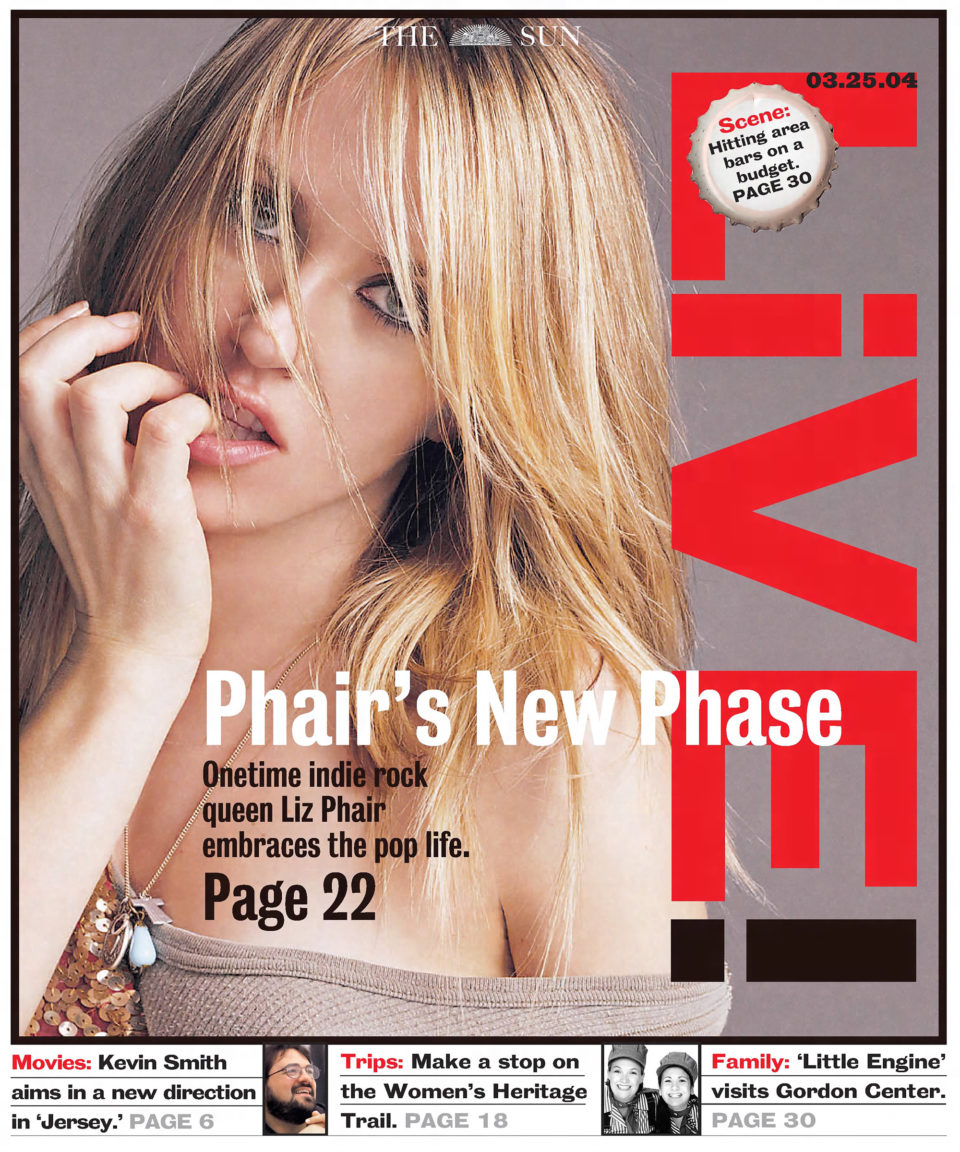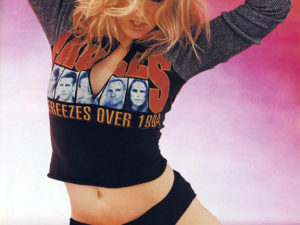By Rashod D. Ollison
The Baltimore Sun, March 25, 2004
The old Liz Phair was sharp and darkly introspective; she was interesting. With the 1993 seminal Exile in Guyville album, the artist became the “queen of indie rock”. Alternative fans (and geeky rock critics) adored her – a singer-songwriter whose snide, brash, explicit lyrics paved the way for other feminist rockers such as Alanis Morissette and Meredith Brooks. Back then, Phair seemed so anti-mainstream, so anti-Madonna — writing, producing, playing on and putting out her own records and frankly singing about things some folks only divulge in journals.
Fast forward 10 years and pass two OK but largely forgettable albums: 1994’s Whip-Smart and 1999’s whitechocolatespaceegg. It seems that Phair has done a musical 180. No longer the cynical alternative-rock chick, the Connecticut-born performer, at 36, is sounding more like Avril Lavigne these days. Released in June, Liz Phair, her long-awaited fourth album, is safe and deliberately Top 40-ish – nothing like the beloved Exile in Guyville.
“I think the comparisons are completely fair,” says Phair, who plays the Recher Theatre in Towson Saturday night. She’s calling from her Los Angeles home. “But I had to move on because it would be defeatful to stay an indie chick. I have to do the kind of music that is important to me. And I’ve always loved radio songs, anyway.”
Five years – and a few trends in pop – have flown by since Phair’s last album. Several factors caused the delay: After five years of marriage, the singer and film editor Jim Staskausas, the father of her 7-year-old son Nicholas, divorced. Phair then moved from Chicago to Los Angeles. And Capitol Records, her label, underwent a change in regime. Phair was steadily recording during this time, but she wasn’t happy with the results. Some tracks were too “mellow”; her sound, she felt, needed something “extra”. So she called the Matrix, the production team that crafted radio smashes for Lavigne and Britney Spears. The trio of Lauren Christy, Scott Spock and Graham Edwards helmed four songs on the album, including the first single “Why Can’t I?”, whose title comes off as a plea to old fans who may want to skewer Phair for going pop.
With the new sound comes a fresh look. Never shy about sex, Phair, trim and toned, shows lots of skin in recent promotional shots. In some pictures, she sports just a T-shirt and panties. On the Liz Phair cover, the singer-songwriter straddles a guitar. Her lips are parted; her head is cocked to the side and her hair is blown in her face. It’s a big contrast from the whitechocolatespaceegg shot, in which Phair looked like a depressed college student with a pageboy cut.
“I used to feel very trapped by the old records,” the singer says. “But you can’t go backward. Guyville was a moment in time. I let myself off the hook. I was ready to create something new, and it was easy for me. I think the new musical direction was harder for fans and critics to accept.”
As of this writing, the album, unlike Phair’s first two, has not gone gold. But with the expensive promotional push, the expectations were clearly set on platinum-plus sales. The music is catchy if a little predictable at times — the kind of glossy, punk-lite tracks that made Lavigne so popular. Lyrically, the songs sound embarrassingly shallow coming from a mid-30s mom. On “Rock Me”, a tune about Phair’s adoration for a guy 10 years her junior, she sings: “I want to play Xbox on your floor/Say, ‘Hi’ to your roommate who’s next door/You don’t have a dime/But I don’t mind …”
“I wanted to have fun,” Phair says of the album. “It is fun. I feel like I’m beginning a new phase, and I wanted to show that.”
To appease the fans who dig her sexually frank tunes, Phair threw in “H.W.C.” An ode to bodily fluids, the song tries too hard for naughtiness, lacking the cleverness and humor of such freaky ditties as “Flower” and “Glory.”
But regardless of the lukewarm reception her new mainstream sound has received, Phair says she loves her album and that matters the most. Plus, her personal life is more centered these days, thanks to her son.
“Having my son made me appreciate life itself,” she says. “It made me realize that it’s OK to fail. It freed me in so many ways.”
And if that meant shedding the indie chick image for good, so be it.
Featured Image: Liz Phair (Photo: Phil Poynter)







